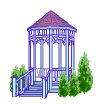 |
|
| The Milan winter | |
 |
|
| The Milan winter | |
| This is my fifth New Year in Milan. To be frank, winter in Italy is cold
and the Milan winter is the worst. It is sandwiched in between the Alps
in the south and Switzerland in the north, but surprisingly little snow
falls. To make up for that, it gets freezingly cold; you don't have to
wait until December for below-zero temperatures in the morning and evening
and they continue until spring. It's just unbearable. On top of that, weeks go by with misty days and no sight of the sun. This is the only season in which Italians become taciturn and dark and gloomy -- the power of nature is frightening. I should point out here that the general bright and cheerful image of Italians applies to Italians south of Rome; the reason, of course, is that even in winter the sun shines brightly in the south. Even on the rare days that the sun does shine, it's so bitterly cold that your head feels like it's going to snap. The mucus freezes in your nose. I think I've heard that this phenomenon is called "radiant cold", but I'm not sure my memory is reliable. That reminds me, recently my Japanese is pretty shaky; after all, I have few opportunities to speak it, and most of my conversations with my husband are carried on in a bizarre mixture of Italian, English, Japanese and gestures. I sometimes suspect that I'm making up new Japanese. |
|
 |
|
|
There are people who say enviously to me, "It's fantastic to speak three languages like you do," but this is a hallucination. Actually, I can't make proper use out of any of them, so I just mix them up to plug the gaps. Sadly, the decline in my Japanese isn't matched by any improvement in the other languages. At present, if I don't take care to clearly enunciate my Japanese vowels, I speak with an Italian accent -- the rhythm, the intonation, everything has been poisoned by Italian. I don't believe that a person's identity is decided solely by language, but language is not unrelated to it. Instead of agonizing, I should just study more, I suppose -- and maybe I will one day. I've got completely sidetracked. The indispensable restoratives for getting through this terrible season are the Natale (Christmas) and the New Year. To be precise, the period I'm referring to starts with the holiday of the Annunciation on 8 December and continues until the day of the Epiphany on 6 January. This is a period marked by very solemn religious observances. In the case of Milan, 7 December is the holiday of Saint Ambrose, the city's guardian saint, so the Natale begins on this day. The first thing that catches the eye is the light decorations. In many streets, specially designed lights are hung up on both sides of the street, making an arch of light. Just seeing them, just being there is enough to make you feel excited. Your frozen heart and body are gradually thawed out; it's like coming back to life. The strange thing is that you now feel you'll be able to bear the remaining hard days of winter. That Mecca for opera fans, the Teatro alla Scala, also opens on this day. The dignitaries and celebrities and film stars invited to the opening performance on 7 December all dress up in their finest clothing and are featured in the news programs. Many families take advantage of this holiday to go skiing. Every year the Italian Go Federation holds a four-day long-weekend tournament. Beginning last year, it now cooperates with the Mind Sports Olympiad association to hold a festival featuring more than 50 games. This attracts a lot of attention. |
|
 |
|
|
Of course, the best way to get through this season is to escape on a go tour of a warm region. The problem is getting hubby to accept this . . . regardless of the season, this is a problem of life and death for me, as he is my strongest foe. My secret goals for this year: improving at Italian and managing my husband. |
|
(Monthly Go World, January 2002)